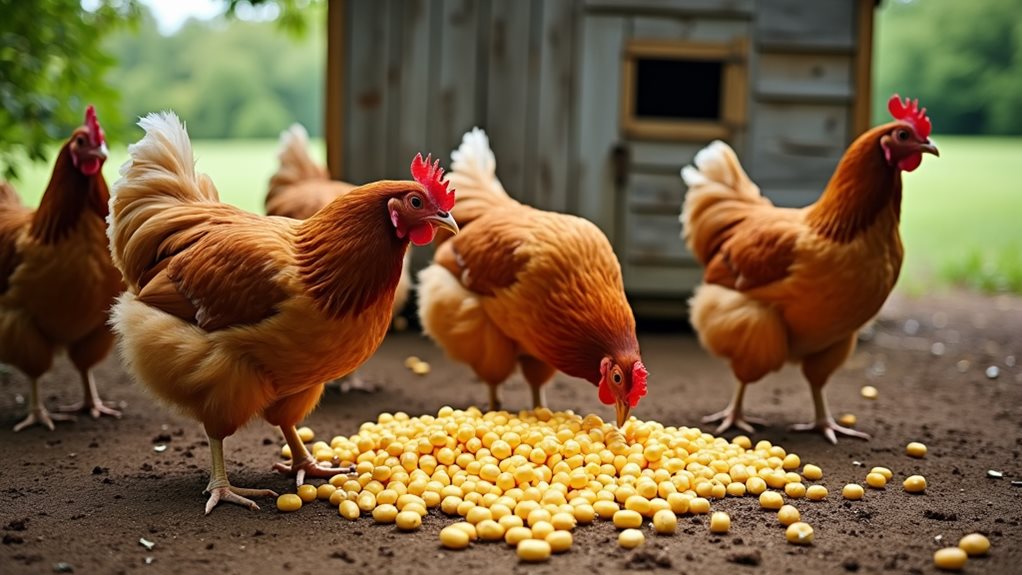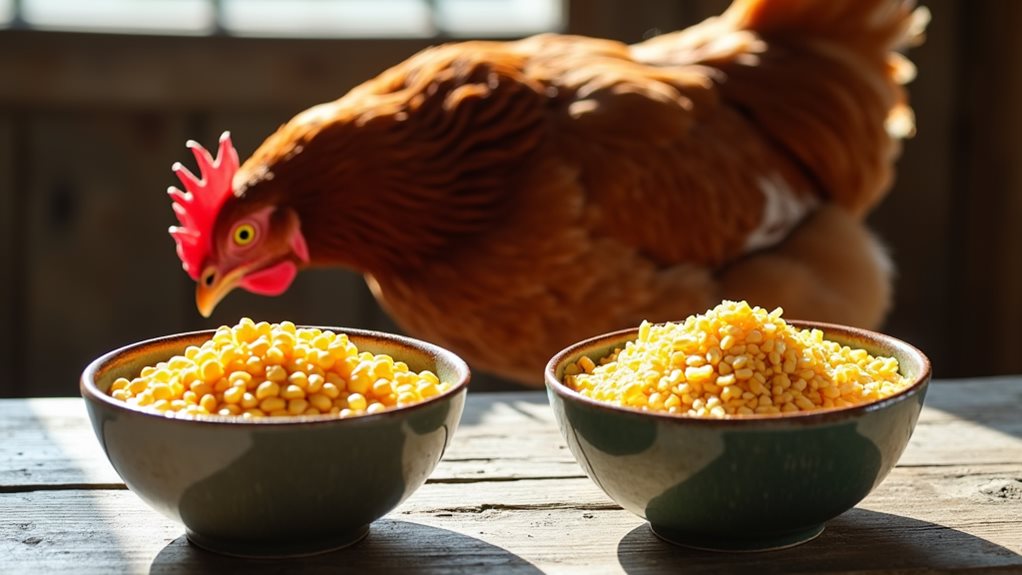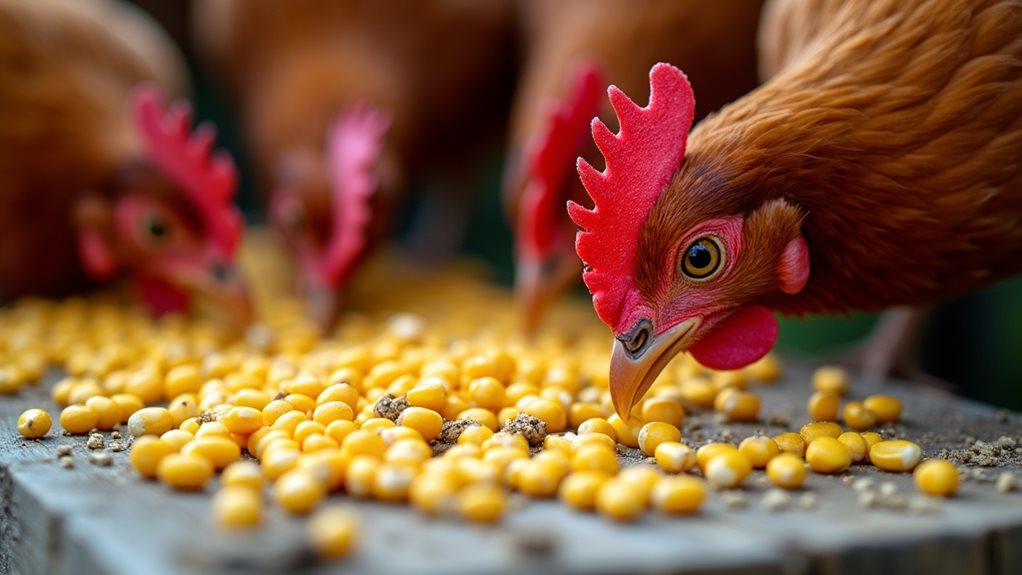Yes, chickens can eat whole corn, but you'll need to limit the amount to maintain their health. While corn is efficiently processed by their gizzards and provides excellent energy (3,373 kcal/kg), it shouldn't exceed 10% of their total diet. You should offer about a handful per bird daily, preferably in the evening when foraging activity naturally increases. Though whole corn retains more nutrients than cracked corn and promotes better satiety, it lacks sufficient protein for ideal health and egg production. To guarantee your flock's wellbeing, implementing proper feeding practices and understanding nutritional considerations will make all the difference.
TLDR
- Chickens can eat whole corn, but it should be limited to 10% of their total diet to maintain proper nutrition.
- Their powerful gizzards efficiently process whole corn, making it a suitable treat especially during cold weather.
- Feed whole corn in the evening, offering about a handful per bird to support natural foraging behavior.
- While nutritious, whole corn lacks adequate protein, so it must be part of a balanced diet with other foods.
- Baby chicks should not eat whole corn as their primary food since it lacks essential nutrients for proper development.
Whole Corn Benefits for Chickens

Whole corn offers several beneficial advantages for chickens when incorporated properly into their diet.
Your flock's powerful gizzards can efficiently process the kernels, and the corn's slow digestion keeps them feeling satisfied longer. High-quality chicken feed should be provided alongside whole corn to maintain proper nutrition.
Since it's unprocessed, whole corn retains more nutrients than cracked varieties, while providing about 3,373 kcal/kg of metabolizable energy that's especially helpful during winter months.
The Right Amount to Feed
Feeding the right amount of whole corn to your chickens requires careful attention to maintain their health and productivity.
You shouldn't exceed 10% of their total diet with whole corn, limiting it to about a handful per bird daily. Oranges serve as a healthy snack option for goats when fed in moderation, providing vitamins and hydration benefits.
For best results, you'll want to incorporate corn as part of their evening feeding routine, especially during colder months, while ensuring they receive a balanced diet. Consider offering whole corn alongside other grains, as research shows chickens can effectively manage their nutrition when choice-fed separate feeders.
Whole Vs Cracked Corn

Many chicken keepers face the choice between whole and cracked corn when supplementing their flock's diet.
While whole corn retains more nutrients and encourages longer digestion times that keep chickens feeling fuller, cracked corn offers easier consumption and digestion. Neither option provides adequate protein levels needed for optimal health and egg production. Additionally, incorporating high fiber content from seeds like chia can enhance digestive health and overall well-being in chickens.
Your choice may depend on cost, as whole corn is typically cheaper, but both varieties should only be offered as treats within a balanced feeding program.
Baby Chicks and Corn
When it comes to baby chicks, their nutritional needs differ considerably from adult chickens in the flock.
While they can consume whole corn, it shouldn't be a primary food source, as their developing digestive systems need time to adjust. Since whole corn lacks sufficient protein, it's especially important to limit its use with growing chicks. Overconsumption may lead to digestive issues, so it's crucial to monitor their intake.
Instead, focus on providing a balanced starter feed supplemented with protein-rich alternatives like mealworms and scrambled eggs.
Introduce whole corn gradually and in limited quantities.
Safe Feeding Practices

Safe and responsible corn feeding starts with proper portion control and timing.
You'll want to limit corn to 10% of your chickens' total diet, offering just a handful per bird daily.
It's best to scatter the corn in the evening, which helps keep your flock warm overnight while encouraging natural foraging behavior.
Always guarantee your chickens have access to grit for proper digestion. Additionally, ensure that your chickens' overall diet includes nutritional balance from diverse fruits and vegetables to maintain their health.
And Finally
You'll find that whole corn can be a healthy addition to your chickens' diet when fed properly and in moderation. While it's an excellent energy source and treat, remember to maintain a balanced feeding approach with quality commercial feed as the main component. Consider cracked corn for younger birds, always introduce new foods gradually, and monitor your flock's response. With these guidelines in mind, you can confidently incorporate corn into your chickens' feeding routine.